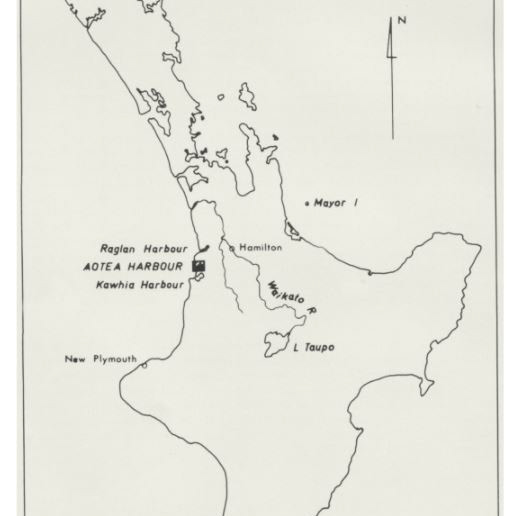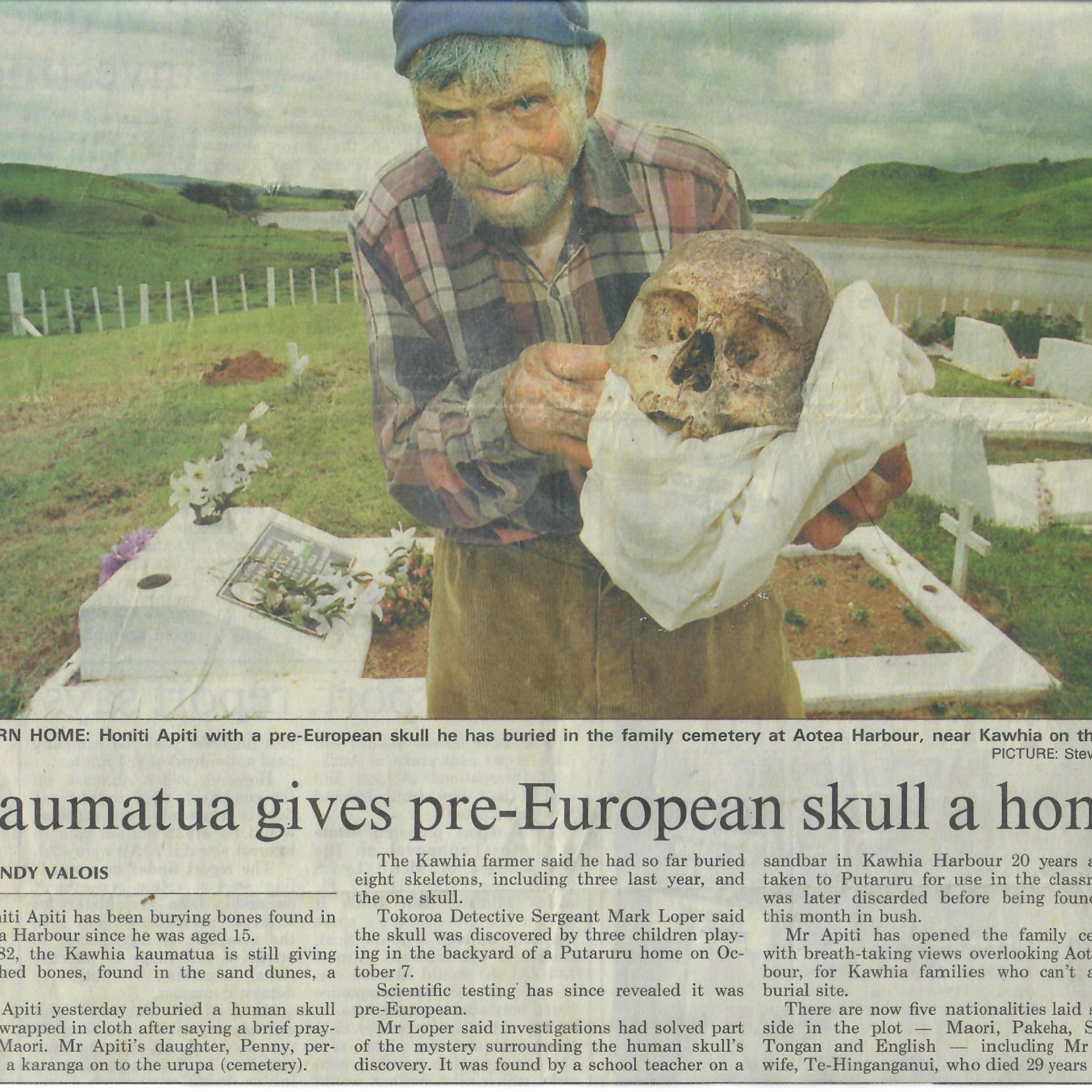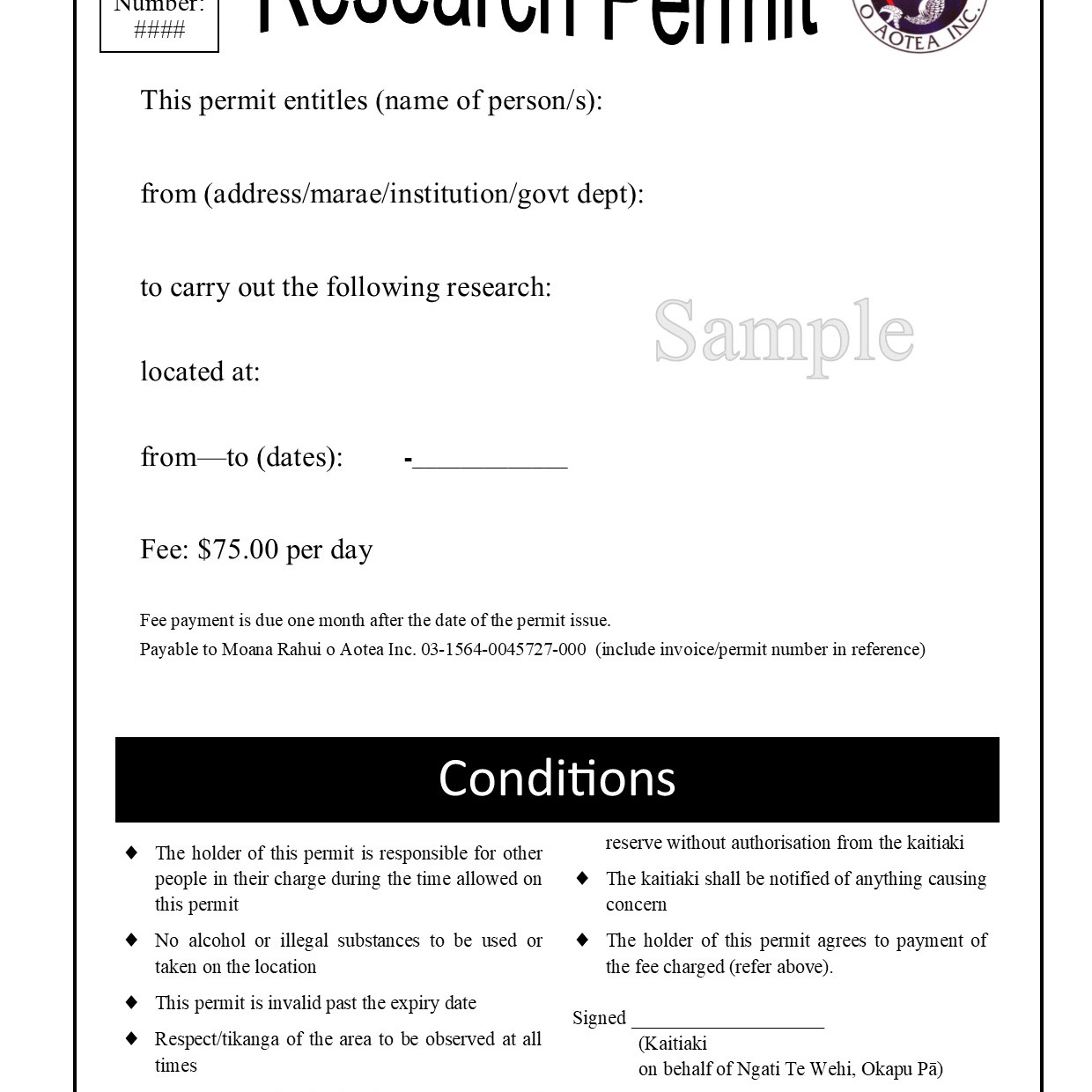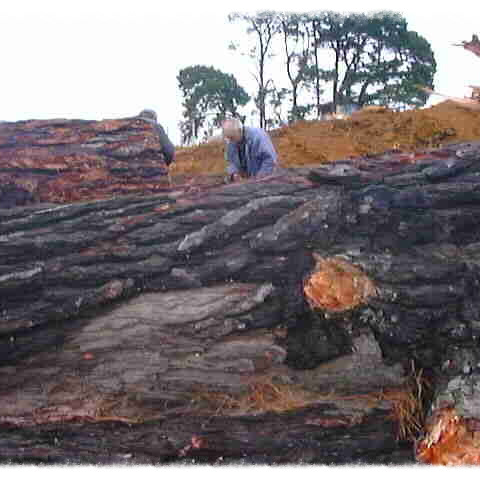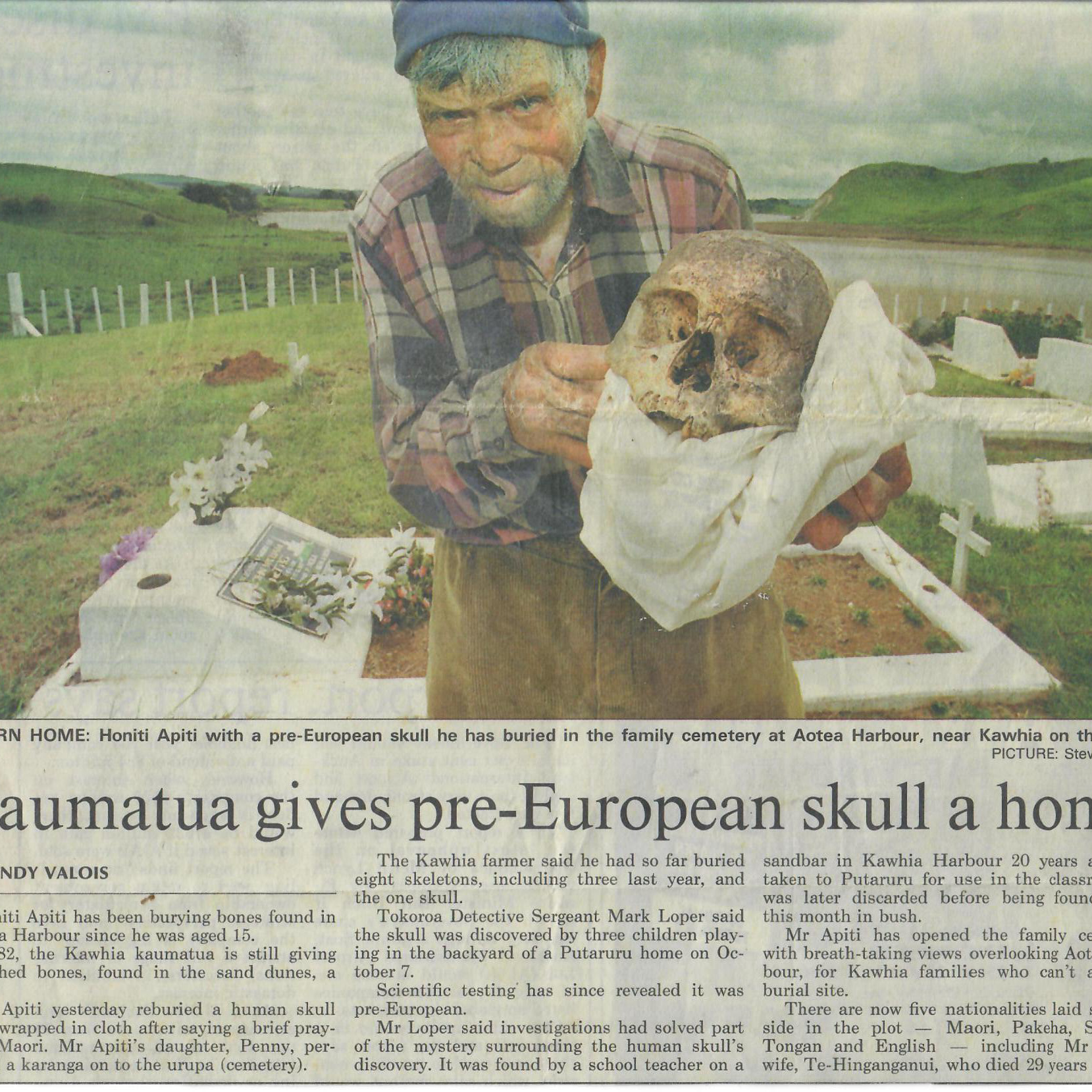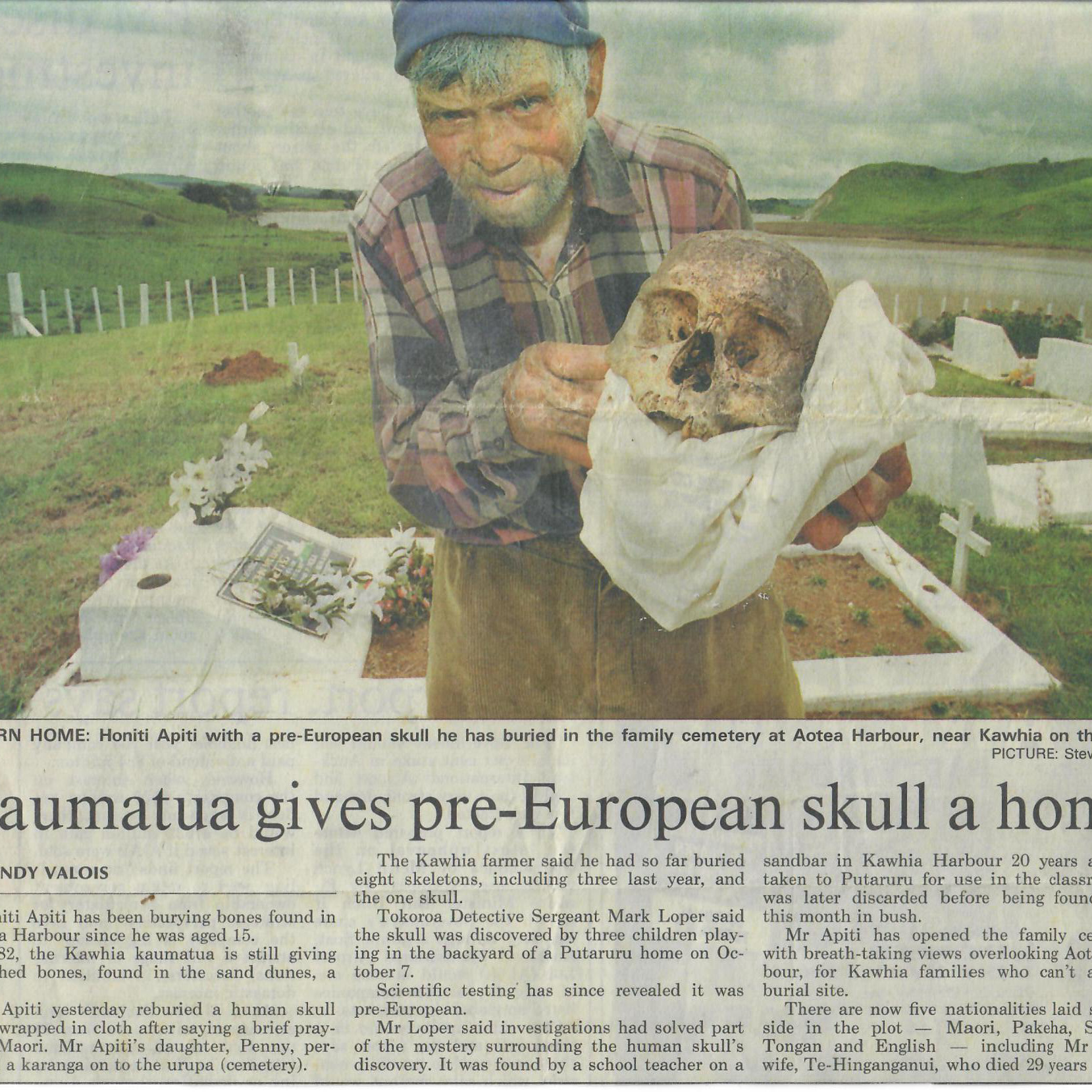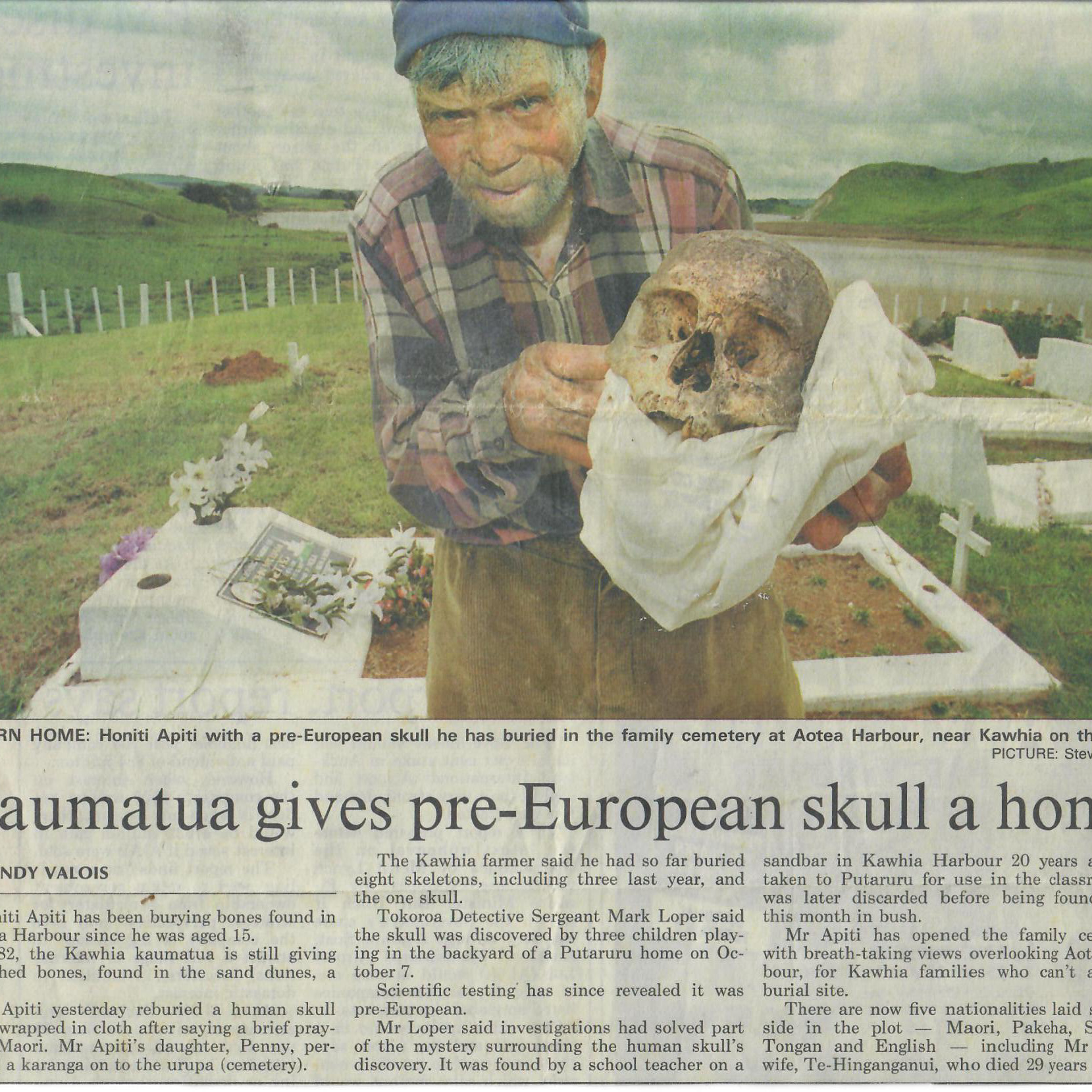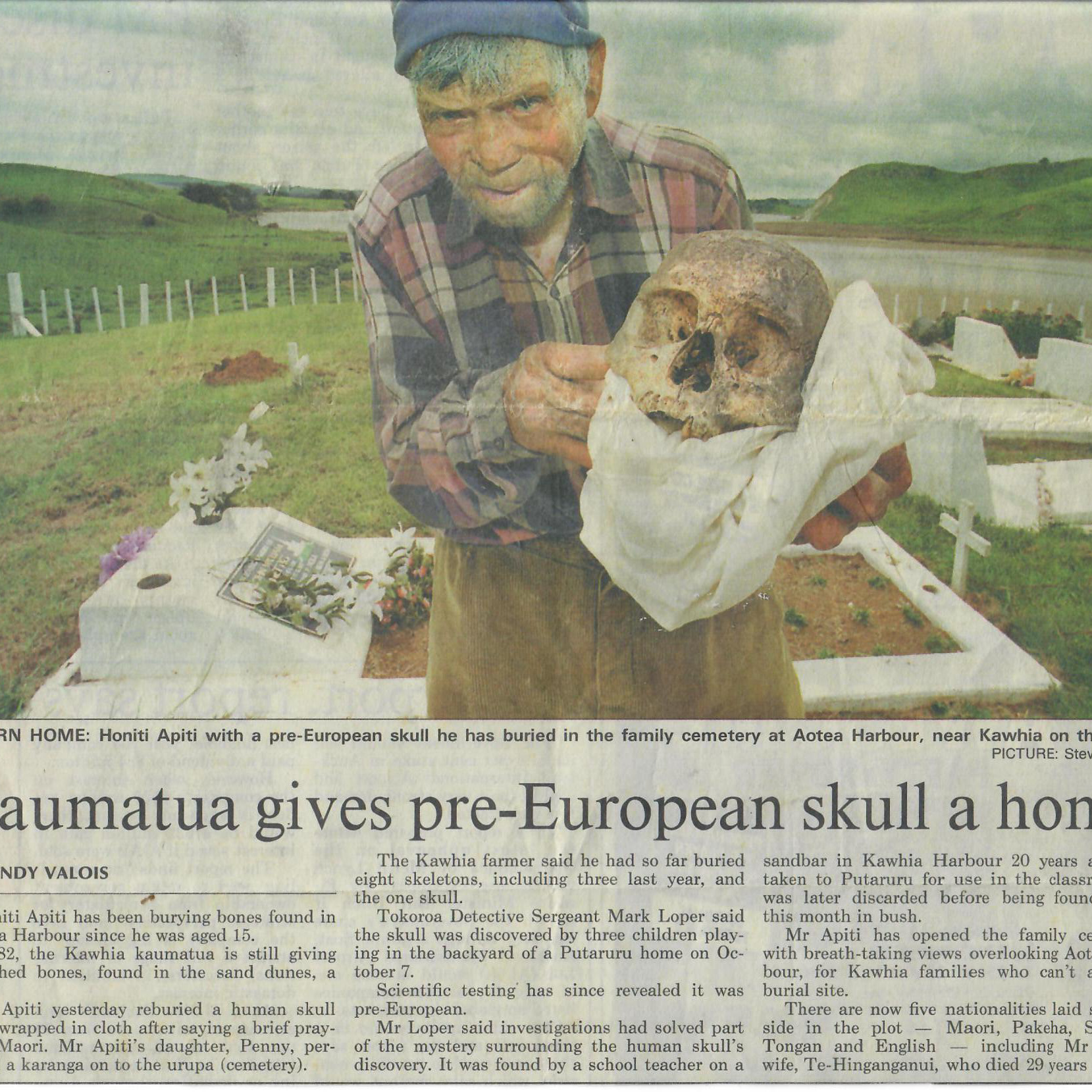AOTEA HARBOUR, AOTEAROA - NEW ZEALAND
As the mandated body to represent Ngati Te Wehi, Okapu Pā on the Foreshore and Seabed Bill, Moana Rāhui o Aotea sent a submission to the Select Committees Office at Parliament Buildings. Our submission opposing the Bill can be read below and is maintained on this website as a historical reference to Ngati Te Wehi's stance on this issue.
Objective information can be found on the Wikipedia site http://en.wikipedia.org/wiki/New_Zealand_foreshore_and_seabed_controversy
A Submission on the Foreshore and Seabed Bill to the Special Select Committed on the Foreshore and other Related Sea Matters
Moana Rāhui o Aotea Inc. Environmental Arm of Ngati Te Wehi Ookapu Pa submission AGAINST the proposed Foreshore and Seabed Bill.
Moana Rāhui o Aotea is the mandated body instructed to by Ngati Te Wehi o Ookapu Pa to speak on behalf of all environmental matters relating to Ngati Te Wehi o Ookapu Pa, Aotea Harbour.
Moana Rāhui o Aotea Inc. Request that the following Submission be heard in our Rohe at Ookapu Pa, Aotea. Moana Rāhui o Aotea Inc. Request that the Select committee travel to our Rohe to hear the people of Ngati Te Wehi o Ookapu Pa. .
Moana Rāhui o Aotea Inc, the Environmental Arm of Ngati Te Wehi reason why we oppose the Foreshore and Seabed Bill. - Clause 3 (a) states that the purpose is to vest the full legal and beneficial ownership of the foreshore and seabed in the Crown to ensure that the public foreshore and seabed...is preserved in perpetuity for the people of New Zealand. Commentary – Clause 3(a) is the reason our people have been objecting to the whole foreshore issue because it shows that the purpose of the Bill is to take away or extinguish our tino rangatiratanga over the foreshore and seabed. It extinguishes Māori rights to the foreshore and seabed that are recognised in tikanga, in Te Tiriti o Waitangi, and the common law. By referring to "public foreshore" the Bill excludes areas that are already privately owned, most of which are in non-Māori hands. The clause means that the rights of Māori are taken away, while the property rights of non-Māori are protected. The Bill’s purpose clearly breaches Article Two of the Treaty as well as the standard common law rules about property rights etc. It is an unjust raupatu. By protecting non-Māori but not Māori rights the Bill also breaches international human rights norms such as the Convention on the Elimination of All forms of Racial Discrimination. - Clause 12 states that "no part of the public foreshore and seabed may be alienated or otherwise disposed of (except) by a special Act of Parliament". Commentary – The Crown has said that needed to take the foreshore because it was worried Māori would sell it. However Clause 12 clearly gives the Crown a right to sell it through a "special Act of Parliament". Māori experience of the large scale asset sales of the 1980s and 1990s indicate that the government could quite easily do this again. - The government has said that the Bill gives Māori "due process" or a right to go to court on foreshore and seabed matters but it is worth remembering two points 1. It is only a due process after the Crown has taken the foreshore and seabed. 2. It does not allow Māori to argue for our rights in tikanga, the common law, or under Te Tiriti. Instead it creates a new process that is unfair and effectively delivers nothing.
WHAT IS THE NEW DUE PROCESS? - Clauses 35 and 39 give the Māori Land Court jurisdiction to grant "ancestral connection orders" to an "established group of Māori that has had since 1840...an ancestral connection" to an area of foreshore. - Clause 3 (c) defines an ancestral connection as an "expression of kaitiakitanga" that recognises "the ancestral connection of Māori with the public foreshore and seabed".
Commentary – "Ancestral connection" is a new invention that can be established in three ways: (a) "in accordance with tikanga" as defined by the Crown in Te Ture Whenua Māori Act 1993 (b) in a Treaty settlement or (c) by owning private property next to the foreshore.
Does the Proposed Bill Recognise Kaitiakitanga
No. It merely means that we may have "more effective participation in decision-making". - Clauses 84 to 89 amend the Resource Management Act to include references to "ancestral connection" in the "matters to be considered" in local government decision-making.
In fact is less than already exists under the current consultation provisions of the Resource Management Act which refers to Māori, not just those Māori who might get an ancestral connection order. The court process will be expensive, time consuming, and effectively deliver nothing.
There are a number of clauses that deal with new "rights" called "territorial customary rights". - Clause 28 defines them as the rights that would have been recognised in the common law before the passing of the Act. - Clause 29 creates a new High Court jurisdiction to grant a new "customary rights order" to any group of New Zealanders that would have "held territorial customary rights" if the "full legal and beneficial ownership of the public foreshore and seabed" had not been vested in the Crown. - Clause 35 outlines the jurisdiction of the Māori Land Court to also consider applications for a "customary rights order". - Clause 111 states that the new rights and "ancestral connections" may be "recognised" in Treaty settlements between Iwi and the Crown. Commentary - The new rights are a meaningless fiction. A customary rights order will only declare that Māori have the rights they would have had if the Crown had not taken them away. It restricts the rights to a set of traditional activities such as the taking of hangi stones or the launching of waka.
CUSTOMARY RIGHTS ORDER - Clauses 68 and112 require that any "customary rights order" must be registered with the CEO of the Ministry of Justice in a new "foreshore and seabed register". - Clause 33 requires that the orders be referred to the Crown to "consider the extent of any redress that the Crown may give".
Commentary - Once the new rights are "registered" Iwi and Hapū may have "discussions" with the Crown about whether any redress will be made for the fact that the rights have actually been taken away by the Crown. "Redress" is not defined in the Bill but the government has stated "We have the ability to control and manage. The Crown will enter into good faith discussions as to how proposals for partnership can proceed in the future in those cases – which will be relatively rare – where a...right might have been recognised". (Parliamentary debate, April 8, 2004). Redress for the "rare" cases of Māori getting a right that doesn’t really exist anymore is effectively limited in practice to a "partnership" in decision-making under the Resource Management Act. DOES THE BILL ACKNOWLEDGE A RIGHT OF DEVELOPMENT? - Clause 64(1) recognises a "commercial benefit" but Clause 64(2) states that any development or commercial benefit "is subject to the scale...of a customary activity".
Commentary – The Bill effectively denies a right of development and confines Māori to whatever scale of activity was practised in the past. There are no similar restrictions on any Pākehā rights. The clauses are clearly discriminatory. Perhaps most importantly the decoupling or separation of the new "rights" from the ancestral connection of whakapapa and title effectively neutralises the rights and turns them into mere interests that diminish the status of the Treaty and make tangata whenua of no more substantive importance than a Rotary Club. The decoupling also means that the traditional common law notion of customary rights is reconfigured to allow grants to non-Māori which further diminishes the Treaty relationship. Non-Māori thus not only have their normal property rights protected where Māori don’t but they also have access to the new "customary rights". For Māori the new "rights" regime is essentially just a set of meaningless fictions.
SUMMARY: In spite of the detail of the Bill and whatever "rights" or "redress" it purports to offer, the fact remains that it takes away the foreshore and seabed from Māori. After 1840 most of the other whenua was of course confiscated under various laws but Māori rights in the foreshore and seabed were never actually extinguished. By default the Treaty was in fact honoured and the common law respected. The Bill confiscates what little Māori have left. It also mocks the politicians’ comments about "one law for all" by creating a dishonest law that clearly reduces Māori rights and status to a lesser position.
Acknowledgement to Aroha Apiti as the author of this submission
Send us your pledge of support or contact us below:
Thank you!
